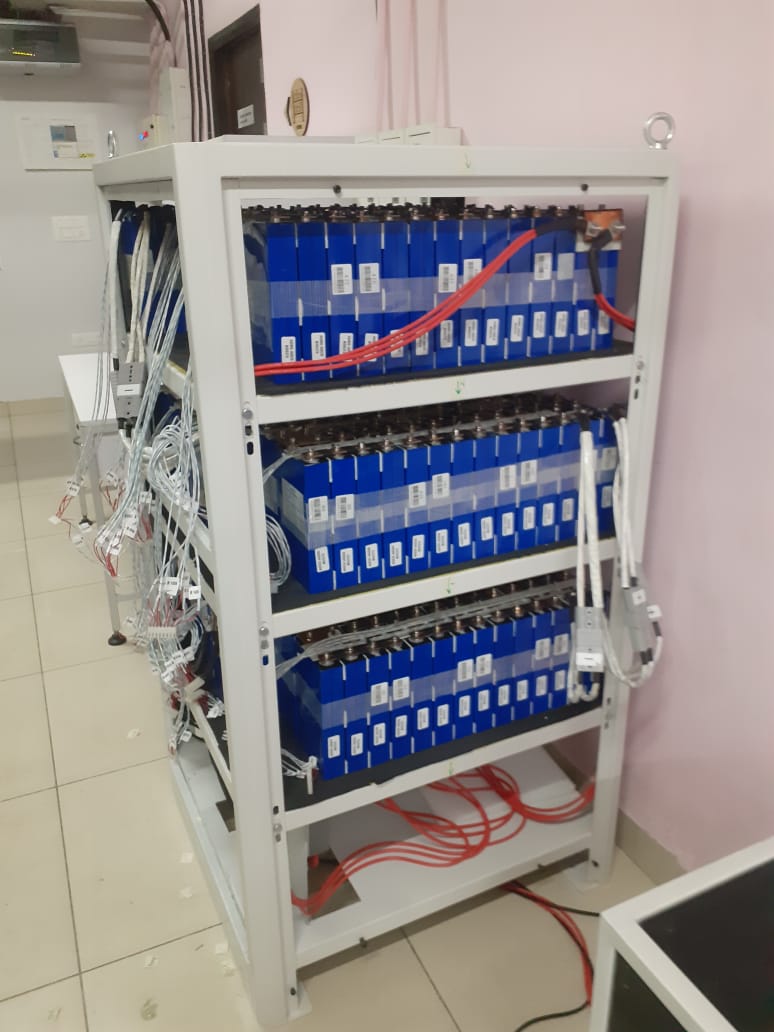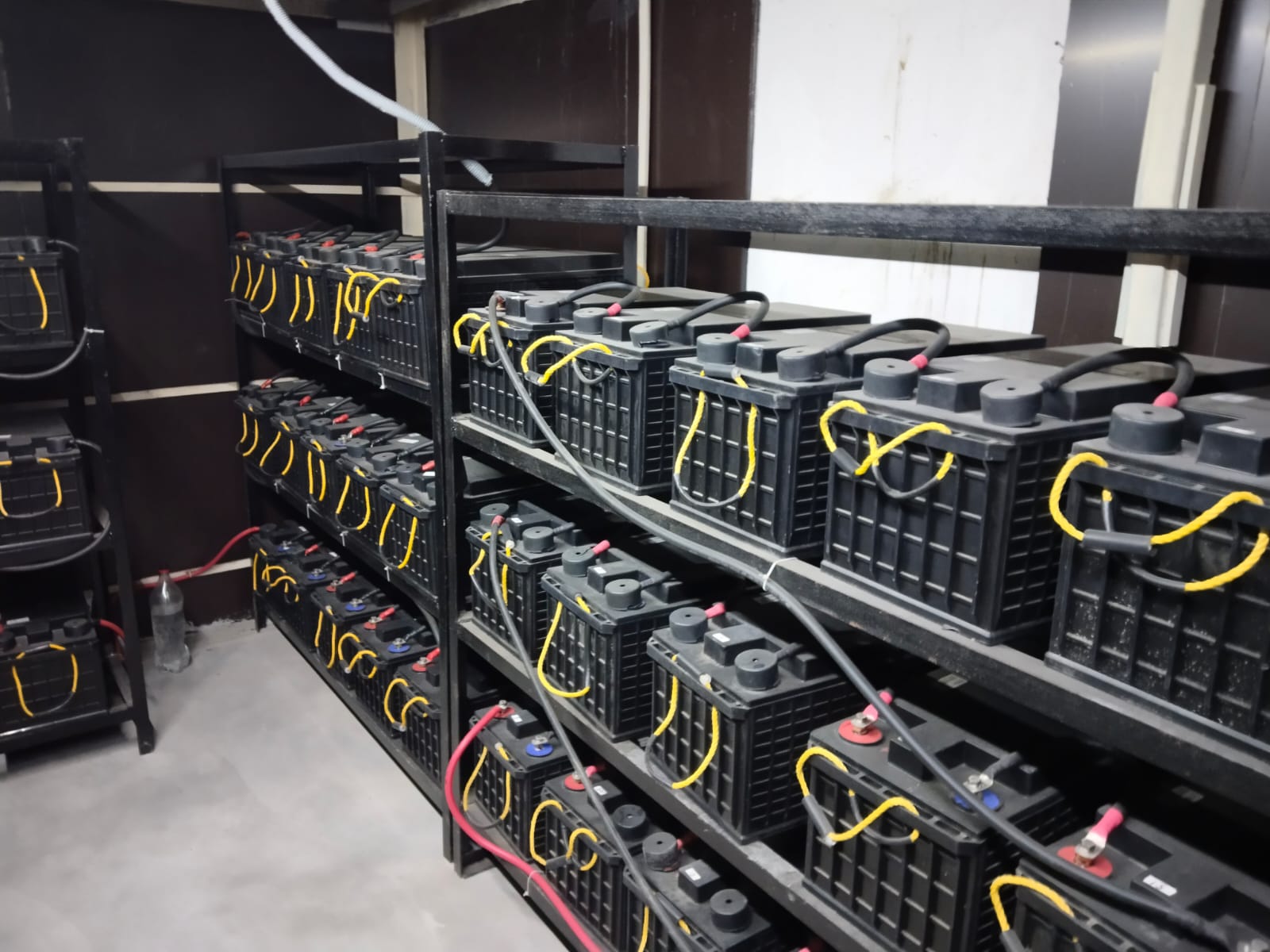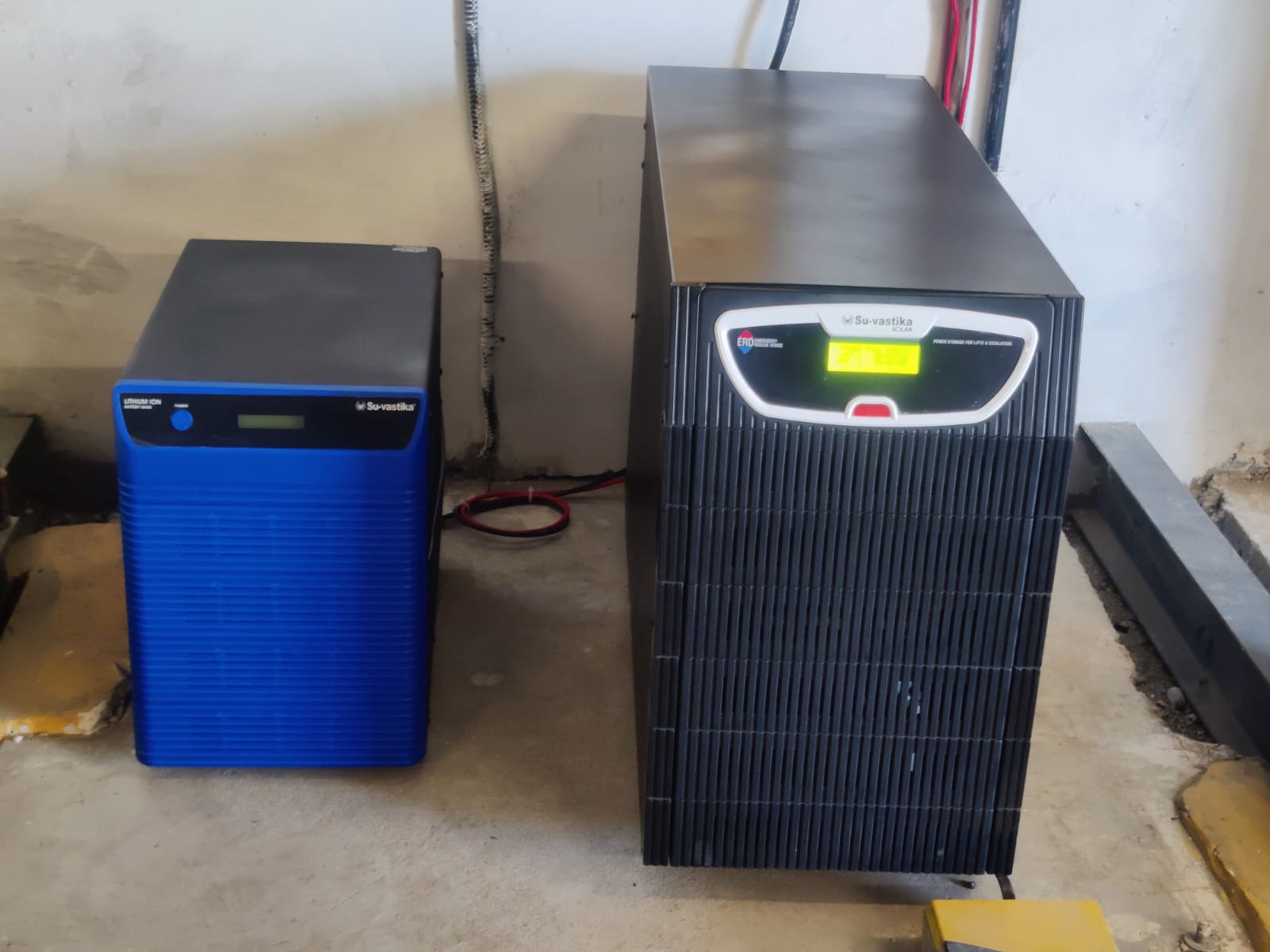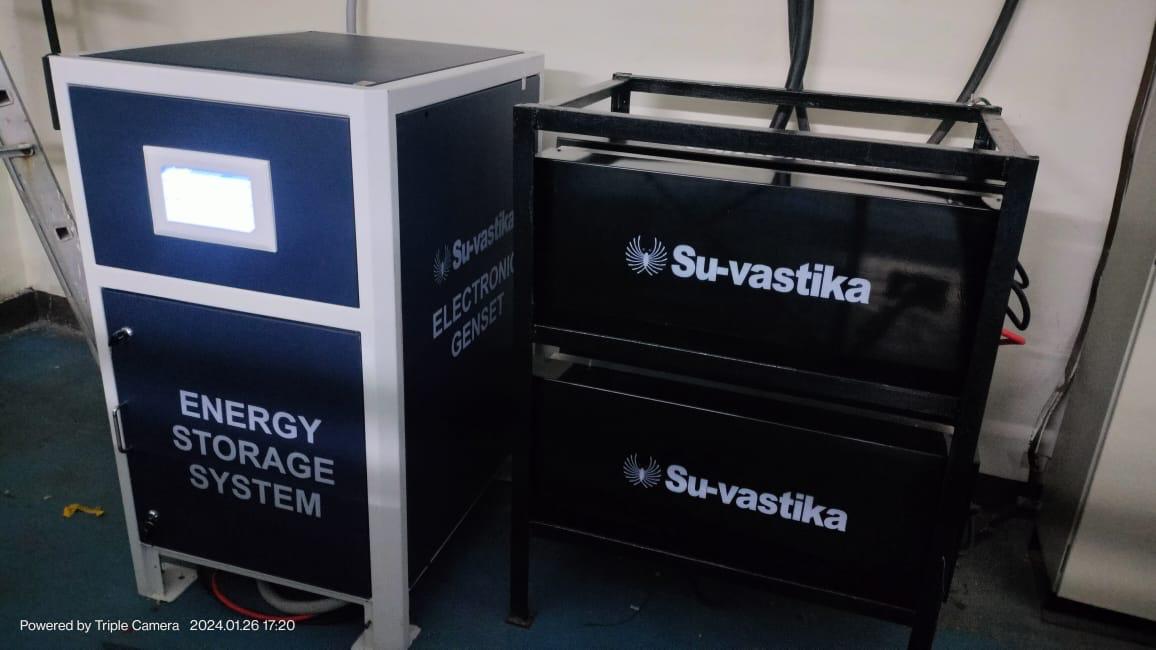
Lithium batteries, when used with inverters/UPS (Uninterruptible Power Supply), offer several benefits compared to traditional lead-acid batteries. Benefits of Lithium battery in Inverter/UPS:
- High energy density: Lithium batteries have a much higher energy density than lead-acid batteries, which means they can store more energy in a smaller, lighter package. This is particularly advantageous in UPS systems where space and weight are critical factors.

Lithium battery bank

- Longer lifespan: Lithium batteries generally have a longer lifespan than Tubular lead-acid batteries. They can endure more charge-discharge cycles without significant degradation, leading to a longer operational life.
- Faster charging and discharging: Lithium batteries have higher charge and discharge rates, allowing them to charge faster and provide power more efficiently. This is especially useful in UPS systems responding quickly to power outages and fluctuations. The Lithium battery is charged in 2 to 3 hours, whereas the Tubular lead Acid battery takes 15 hours to charge.
- IOT feature: the Lithium battery has the Battery Management System to monitor and control its parameters through Bluetooth and Wi-Fi mobile applications.
- Lower self-discharge rate: Lithium batteries have a lower rate, meaning they can hold their charge longer when not in use. In contrast, Tubular lead-acid batteries tend to lose charge more rapidly over time.
- Smaller size and weight: Lithium batteries can be much smaller and lighter than lead-acid batteries due to their higher energy density. This makes them easier to handle and install in various applications.
- Reduced maintenance: Lithium batteries require minimal maintenance compared to Tubular lead-acid batteries, which may need regular checks for water levels and acid replenishment.
- Improved efficiency: Lithium batteries have higher charge and discharge efficiency, meaning less energy is wasted during charging and discharging. This leads to better overall system efficiency in Inverter/UPS applications.
- Safety features: Many lithium batteries have advanced safety features such as overcharge protection, over-discharge protection, and thermal management systems. The Lithium battery comes with a battery Management System built in where there is no Tubular Lead Acid battery protection system. These features help prevent damage to the battery and ensure safe operation in Inverter/UPS systems.
- Scalability: Lithium battery systems can be easily scaled up or down depending on power requirements, making them more flexible for various applications.https://suvastika.com/what-is-lithium-inverter-ups/#:~:text=A%20lithium%20inverter%2FUPS%20is%20an%20inverter%2FUPS%2FBESS%20specifically%20designed,Higher%20energy%20density%20Faster%20charging%20Weight%20and%20space-saving
Despite their advantages, it’s essential to note that lithium batteries are generally more expensive than lead-acid batteries up front. However, the overall cost-effectiveness and long-term benefits often outweigh the initial investment, as the life of the lithium battery is four times of the tubular battery. Hence, the Lithium battery is cheaper than the Tubular Lead Acid.https://suvastika.com/lithium-battery-is-cheaper-than-tubular-battery-in-ups-inverter-usage/ battery.
Written by Kunwer Sachdev https://g.co/kgs/FxMQAd






